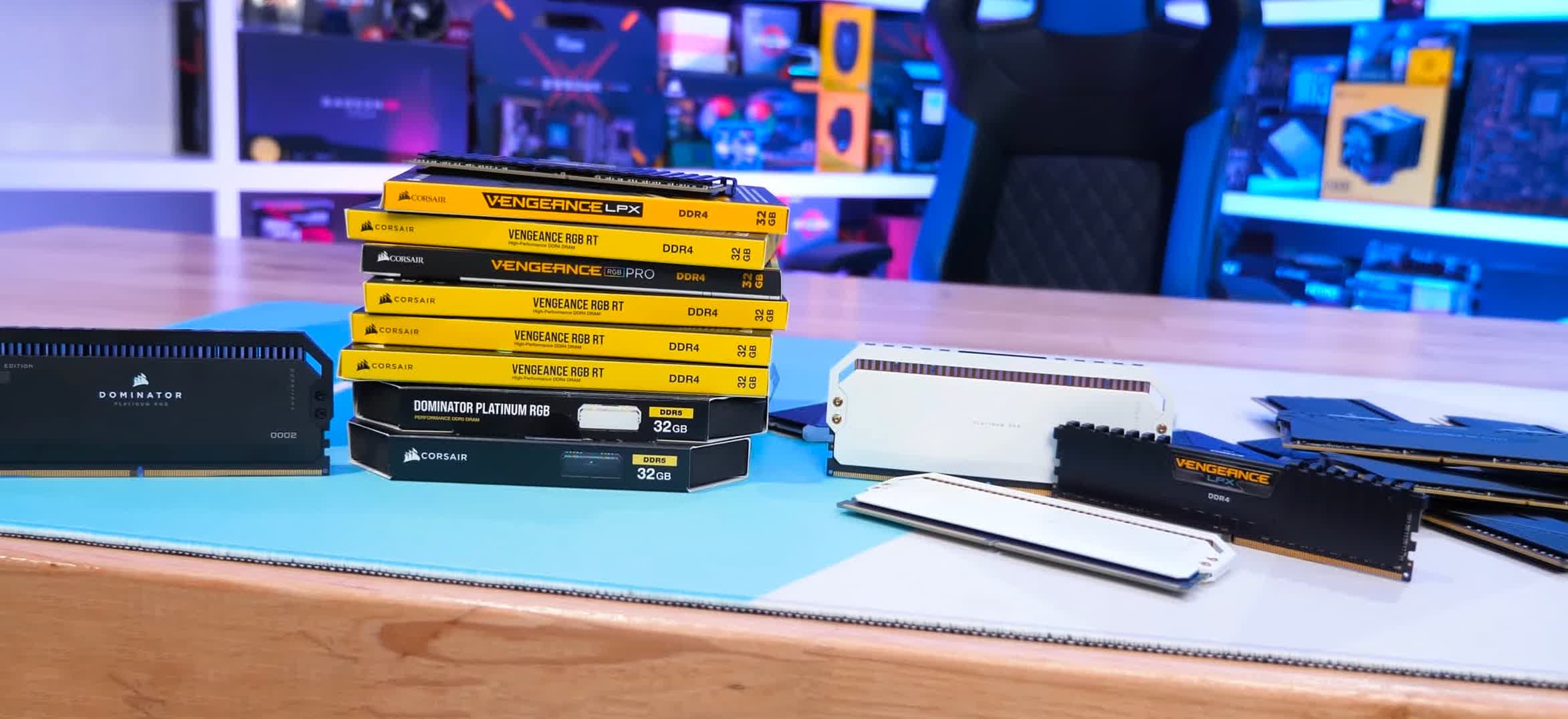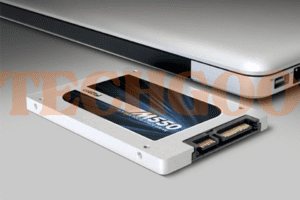You do not necessarily need DDR5 for Intel 12th Gen processors, as they are compatible with DDR4 RAM modules. However, it is worth noting that DDR5 can offer a performance boost, as it was found to be an average of 11% faster in testing compared to DDR4 RAM on Intel’s 12th-gen i9-12900K processor.
DDR5 Vs DDR4: A Performance Comparison
DDR5 vs DDR4: A performance comparison reveals whether you need DDR5 for Intel 12th Gen. Our tests found that DDR5 was 11% faster on average, but compatibility is limited to specific processors. Is it time to upgrade your RAM?
Performance Differences Between DDR5 And DDR4 Ram For Intel 12Th Gen Processors:
- DDR5 RAM offers significant performance improvements over DDR4 RAM when used with Intel 12th Gen processors.
- With faster data transfer rates and increased bandwidth, DDR5 RAM allows for faster data processing and improved overall system performance.
- DDR5 RAM also offers higher memory capacity options, allowing for more data to be stored and accessed quickly.
Benchmarks And Tests Showing The Performance Improvements Of DDR5:
- Benchmark tests have shown that DDR5 RAM offers up to 11% faster performance compared to DDR4 RAM in various testing scenarios.
- DDR5 RAM excels in tasks that require large amounts of data processing, such as video editing, 3D rendering, and data analysis.
- The increased bandwidth of DDR5 RAM enables faster loading times and smoother multitasking capabilities.
The Average Performance Gain Of DDR5 Over DDR4:
- On average, DDR5 RAM provides a performance boost of around 10-15% compared to DDR4 RAM.
- This improvement is particularly noticeable in resource-intensive applications and games.
- Faster data transfer rates and lower latency contribute to the overall performance gain of DDR5 RAM.
Real-World Benefits Of DDR5 For Gaming And Other Applications:
- DDR5 RAM offers faster loading times in games, resulting in smoother gameplay and reduced lag.
- The increased bandwidth of DDR5 RAM allows for quicker data access, enhancing the overall gaming experience.
- DDR5 RAM also benefits other applications, such as video editing and content creation, by providing faster rendering speeds and improved efficiency.
DDR5 RAM offers significant performance improvements over DDR4 RAM, especially when paired with Intel 12th Gen processors. The faster data transfer rates, increased bandwidth, and higher memory capacities of DDR5 RAM result in improved system performance and enhanced user experience in various applications, such as gaming and content creation.
DDR5 Compatibility With Intel 12Th Gen
DDR5 RAM is compatible with Intel 12th Gen processors, providing faster performance compared to DDR4. If you’re considering upgrading your RAM, DDR5 is worth considering for an improved computing experience.
Compatibility Of DDR5 With Intel’s 12Th-Gen “Alder Lake” Processors:
- DDR5 RAM is the next generation of memory technology that offers significant performance improvements over DDR4.
- Intel’s 12th-gen “Alder Lake” processors have been designed to be compatible with DDR5 RAM.
- The new processors have an updated memory controller that supports DDR5 modules, allowing for faster data transfer rates and increased memory bandwidth.
- DDR5 RAM is backward compatible with DDR4, meaning it can be used in systems that support DDR4, but users will not be able to take advantage of the full benefits of DDR5 technology.
- Intel’s 12th-gen processors provide optimized support for DDR5 memory, unlocking its full potential and improving overall system performance.
DDR5 Support For Intel’s 13Th-Gen “Raptor Lake” Processors:
- Intel’s upcoming 13th-gen “Raptor Lake” processors are expected to continue the trend of supporting DDR5 memory.
- These processors will likely offer even better compatibility and performance enhancements with DDR5 RAM compared to the 12th-gen processors.
- DDR5 support will enable faster data transfer speeds, higher memory capacity, and improved power efficiency for systems equipped with “Raptor Lake” processors.
- Users who are planning to upgrade to the 13th-gen processors should consider opting for DDR5 RAM to maximize performance gains and future-proof their systems.
Comparison With AMD’s 6000-Series Mobile And 7000-Series Desktop Processors:
- AMD’s 6000-series mobile and 7000-series desktop processors also offer support for DDR5 memory technology.
- AMD has partnered with memory manufacturers to develop DDR5-compatible modules that are optimized for their processors.
- The performance improvements offered by DDR5 RAM are similar across both Intel and AMD platforms, making it a viable choice for users regardless of their preferred brand.
- Users looking to build a new system or upgrade their existing one should consider the compatibility of DDR5 RAM with both Intel and AMD processors to make an informed decision about their hardware requirements.
Compatibility Of DDR4 With Intel’s 12Th-Gen Processors:
- While Intel’s 12th-gen processors are primarily designed to support DDR5 RAM, they are also backward compatible with DDR4 modules.
- This allows users to still use their existing DDR4 RAM modules with the new processors, providing a cost-effective upgrade path.
- However, it’s important to note that using DDR4 RAM with the 12th-gen processors will limit the performance potential of the system.
- Users who want to take full advantage of the capabilities of the 12th-gen processors should consider upgrading to DDR5 RAM for optimal performance and future-proofing.
Factors To Consider Before Upgrading To DDR5
Before upgrading to DDR5 for Intel 12th Gen, it’s important to consider factors such as compatibility with other components, price, and performance benefits. Assessing your specific needs and requirements will help determine if the switch to DDR5 is necessary for your system.
Upgrading your RAM is an important decision that can significantly impact your computer’s performance. With the release of Intel’s 12th generation processors, the question of whether you need DDR5 RAM arises. Before you decide to upgrade, there are several factors you should consider:
Cost Of DDR5 Compared To DDR4:
- DDR5 RAM modules are a newer technology and tend to be more expensive than DDR4 RAM. The price difference can vary depending on the brand and specifications you choose. Make sure to factor in the potential cost increase when considering an upgrade.
Availability And Pricing Of DDR5 Ram Modules:
- DDR5 RAM modules may not be as readily available as DDR4 modules, especially during the initial release phase. It’s important to check the market availability and pricing of DDR5 RAM before making a decision. Keep in mind that prices may fluctuate, and it may take some time for the market to stabilize.
Potential Compatibility Issues With Older Motherboards And CPUs:
- Upgrading to DDR5 RAM may require a motherboard and CPU that support this technology. If you have an older motherboard or CPU, there is a chance that they may not be compatible with DDR5 RAM modules. It’s crucial to check the specifications of your existing hardware before considering an upgrade.
Future-Proofing Your System With DDR5:
- DDR5 RAM offers improved performance and higher memory capacities compared to DDR4. If you want to future-proof your system and take advantage of the latest technology advancements, upgrading to DDR5 RAM can be a wise choice. It can provide better multitasking capabilities, faster data transfer speeds, and smoother overall performance.
Benefits And Drawbacks Of Upgrading To DDR5 For Intel 12Th Gen:
Benefits:
- Faster performance: DDR5 RAM offers higher data transfer rates, resulting in improved overall performance and faster response times.
- Increased memory capacity: DDR5 RAM modules can support higher memory capacities, allowing for more intensive tasks and multitasking with ease.
- Improved power efficiency: DDR5 RAM utilizes lower operating voltages, which can lead to improved power efficiency and reduced energy consumption.
Drawbacks:
- Higher cost: DDR5 RAM modules are generally more expensive than their DDR4 counterparts, which can be a significant investment depending on your budget.
- Limited availability: Depending on when you plan to upgrade, DDR5 RAM modules may be in limited supply initially and may come with a higher price tag. Waiting for wider availability and more competitive pricing could be a consideration.
Upgrading to DDR5 RAM for Intel’s 12th generation processors provides several benefits, including faster performance, increased memory capacity, and improved power efficiency. However, it is important to consider the cost, availability, potential compatibility issues, and your budget before making a decision.
Assessing your specific needs and future-proofing requirements will help you determine if upgrading to DDR5 is worth it for your system.

Credit: www.techspot.com
Frequently Asked Questions Of Do You Need DDR5 For Intel 12Th Gen?
Is DDR5 Worth It For 12Th Gen Intel?
DDR5 is worth it for 12th gen Intel processors as it provides an average of 11% faster performance compared to DDR4.
Is DDR5 Or DDR4 Better For Intel 12Th Gen?
DDR5 is better for Intel 12th gen processors as it offers faster performance compared to DDR4.
Does DDR5 Speed Matter For Intel?
Increasing DDR5 memory frequency positively affects performance on both Intel i9-13900K and AMD Ryzen 9 7950X, but the gains are relatively small.
Does Intel 12Th Gen Support DDR5 6000?
Yes, Intel 12th Gen processors support DDR5 6000 memory.
Conclusion
DDR5, the next generation of RAM, has been gaining attention in the tech community. We explored the question of whether you need DDR5 for Intel’s 12th Gen processors. Our tests found that DDR5 was, on average, 11% faster than DDR4 across different benchmarks.
This suggests that there can be a noticeable performance improvement when using DDR5 with the latest Intel processors. However, it’s important to consider compatibility. DDR5 modules are only supported by Intel’s 12th Gen “Alder Lake” and 13th Gen “Raptor Lake” processors, as well as AMD’s 6000-series mobile and 7000-series desktop processors.
Most processors and motherboards made in the last decade support DDR4 RAM, including Intel’s 12th Gen processors. Ultimately, the decision of whether to invest in DDR5 will depend on your specific needs and budget. If you already have a compatible system and are looking for maximum performance, DDR5 may be worth considering.
However, if you have a DDR4-based system that meets your requirements, there may be no urgent need to upgrade. As always, it’s essential to weigh the benefits against the cost before making a decision.




